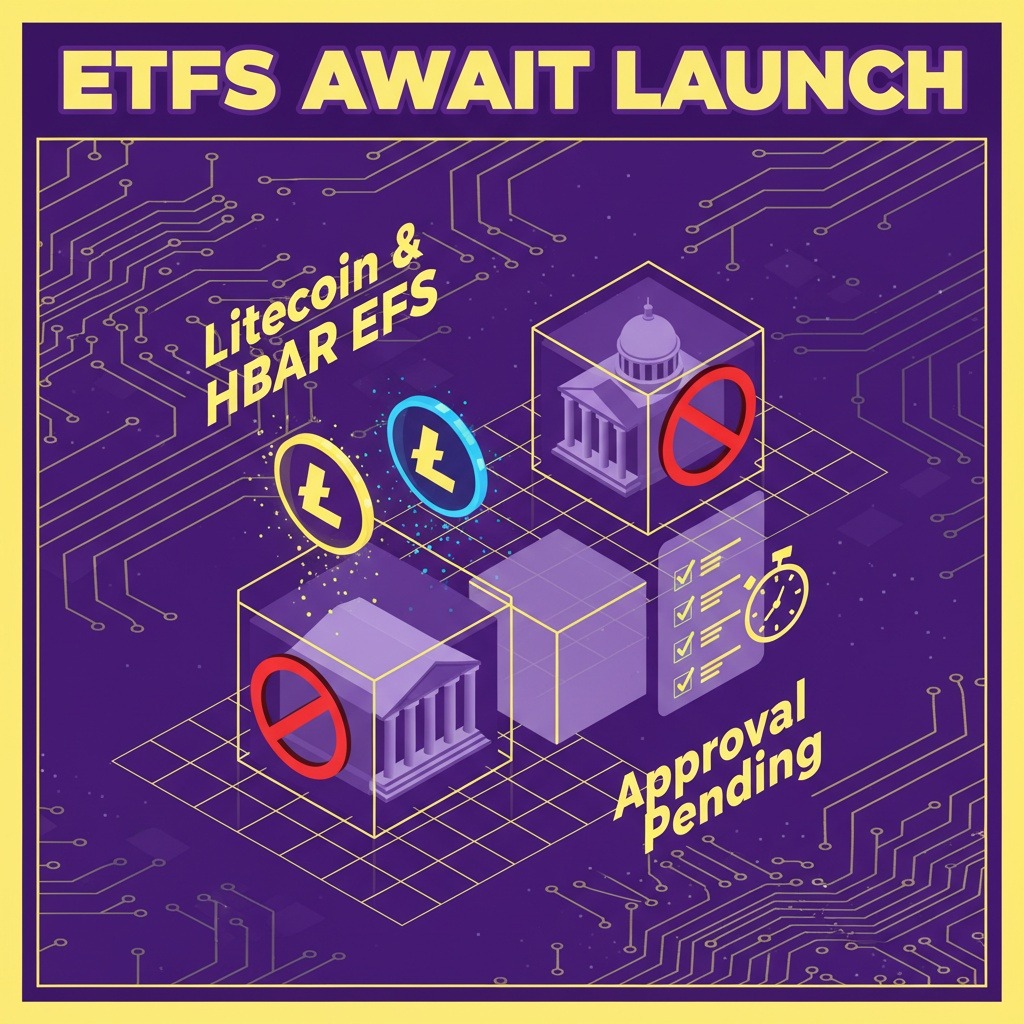Canary Capital, a prominent asset management firm, is poised to receive approval for its exchange-traded funds (ETFs) based on Litecoin (LTC) and Hedera (HBAR) after submitting essential final documentation. However, the anticipated launch of these ETFs is currently hindered by the ongoing government shutdown in the United States.
This week, Canary filed amendments to the proposed spot ETFs, introducing a management fee of 0.95%, accompanied by their new tickers, LTCC for Litecoin and HBR for Hedera. According to Bloomberg ETF analyst Eric Balchunas, these adjustments often represent the final stages before regulatory approval. He highlighted in a post on X (formerly Twitter) that, while the filings appear nearly finalized, the uncertainty surrounding the approval timeline remains due to the shutdown affecting the Securities and Exchange Commission (SEC).
Balchunas, alongside colleague James Seyffart, expressed optimism regarding the status of these amendments, suggesting that Cano’s Litecoin and HBAR ETFs might be on the verge of approval. Seyffart noted the amendments signify that the funds are nearing completion, offering hope for investors eagerly awaiting their launch. Analysts from Bitfinex had previously forecasted that the introduction of altcoin-focused ETFs could ignite a new wave of investment in these cryptocurrencies.
One of the notable aspects of Canary’s ETFs is their management fee, which stands at a comparatively higher rate than the average fees for spot Bitcoin ETFs, which range between 0.15% and 0.25%. Despite this, Balchunas characterized the 0.95% fee as reasonable, given that higher fees are often associated with newer ETF offerings targeting more niche markets. He added that if these ETFs gather significant investor interest, competitors might emerge with lower-priced alternatives.
Interestingly, despite the government shutdown, activity regarding new ETF applications continues unabated. Balchunas noted a surge in submissions for high-leverage 3x ETFs from various issuers, including Tuttle Capital and GraniteShares, who have filed for a multitude of new funds. The SEC has previously been cautious about approving highly leveraged crypto ETFs due to concerns related to volatility and investor protection.
Currently, estimates suggest that there are around 250 filings for 3x ETFs, with issuers pursuing multiple applications simultaneously as they see a lucrative market opportunity. This strategy, referred to as a “spaghetti cannon” approach by Balchunas, reveals their confidence that investors are increasingly desirous of innovative but potentially risky financial products.
The crypto landscape was prepared for a significant influx of new ETF products this October, with the SEC initially scheduled to issue decisions on 16 crypto-related ETFs throughout the month. Despite these plans, the government shutdown has caused uncertainty, leaving both industry stakeholders and investors in a state of limbo. The SEC indicated it would continue operating during the shutdown, albeit with limited resources, which may further complicate the approval process for pending applications.
As the crypto market eagerly anticipates advancements in ETF approvals, the fate of Canary’s Litecoin and HBAR ETFs hangs in the balance. With the SEC now functioning on a skeletal crew, investors are left to await clarity on when these financial products will finally come to market.



